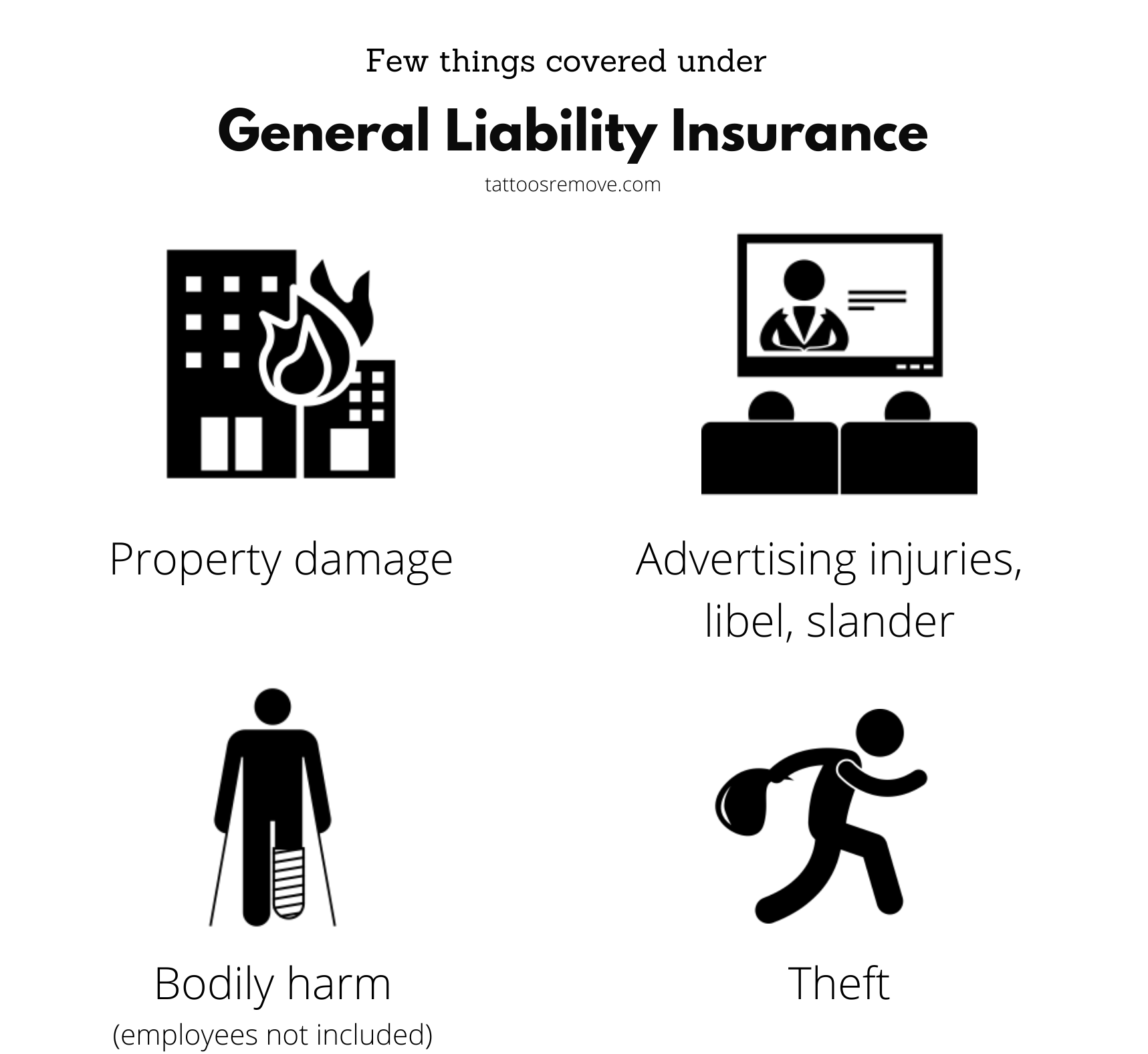
Starting a new business can be overwhelming. A lot of research work, planning, and preparation goes into building something from the ground up. To get a grasp on everything that needs to be done for starting a tattoo removal business, visit: https://tattoosremove.com/starting-a-tattoo-removal-business-everything-you-need-to-know/.
This new entity will also need protection. Accidents can happen anytime, anywhere, and with anyone. Insurance coverage is essential for a business to manage such situations. In most states, having small business insurance is a legal obligation. Even if it’s not compulsory, insurance must not be dismissed as an irrelevant expense. The owner has a responsibility towards the staff, the clinic, the customers, and herself/himself. When the business faces unfortunate incidents like theft, property damage, and liability claims, insurance ensures that the business owner does not have to pay out of pocket. This could have otherwise been very costly.
A laser tattoo removal clinic also poses unique challenges. A customer may sue your business over disappointing or damaging final results. Lawsuits resulting from laser injuries are ever-increasing. In 2007, a woman sued a Chicago Medspa after getting scars on her neck during an age spots removal laser treatment. She won $100,000 in the settlement. There have been several such cases of lawsuits by angry customers. This is just one of the many things that insurance helps you with. The tattoo removal machine is the most important capital asset of the business. It needs to be protected from theft or damage. Several other things also need due consideration. Questions like – “Who can fire a laser in the state?”, “Does your state require a license for the use of lasers?” and “Is the medical director required to be on-site at all times?” – helps understand and determine the type of insurance cover the business will need. So apart from the most basic insurance policies, the clinic also needs to have tailored policies specific to the tattoo removal process. Choose what is right for the business, find reputable insurance provider(s), and bring your policies under an umbrella coverage. Make sure the underwriting is comprehensively done.
General Liability

It is common practice for almost every business to have general liability insurance. GL protects the business from ‘general’ claims and problems. This includes theft, fire, slips and falls, property damage, advertising injuries, bodily harm or property damage of a third party, etc. It does not cover employee injuries.
General liability insurance is also known as business liability or commercial liability insurance.
Average Cost: $500-$1,500 annually
Professional Liability (Malpractice)
This insurance policy covers the business in liability claims arising because of professional mistakes. Despite having a well-trained and qualified staff, a customer may feel dissatisfied with the laser procedure. This can be work mistakes and oversights, undelivered services, or accusations of negligence, in this case, of the laser operator. For example, if an appointment is missed, the customer can take the business to court over undelivered services. The policy will cover legal costs (legal counsel and court costs) and settlements against a client lawsuit. Each customer is also made to sign a patient consent form before the procedure as a standard precautionary measure.
Average cost: $2000-$5000 annually (business and practitioners)
Business Interruption Insurance
Business interruption insurance covers business losses caused by a covered peril such as lightning, fire, theft, etc. It shall provide for operational costs and wages while the business recovers from the disaster. It can also be integrated within the general liability insurance as a rider (added policy provisions). The average cost will depend upon the clinic’s revenue and commercial property valuation.
Property Insurance
This protects business property – buildings (if owned), equipment, and inventory, against theft or damage. Some of their aspects may already be covered under general liability. Laser tattoo removal machines, one of the most crucial business assets, falls under business property coverage. It can be included in the general liability insurance under special terms.
Small business owners often buy a business owner’s policy. This is generally a bundle plan consisting of the most basic insurance policies like general liability and property coverage. It is easier to formulate and may even be cheaper than buying them individually.
Workers’ Compensation Insurance
In case an employee gets hurt at work, workers’ compensation insurance can cover treatment costs as well as a part of the lost wages. This insurance cover is a crucial requirement for businesses with employees in almost every state, although with some variation. For example, in Alabama, only businesses with at least five employees need to have this insurance policy. Employer’s liability insurance often comes under this cover. This protects the business owner in case the injured employee threatens to sue the business. It can cover legal counsel, court costs, and settlements.
Employment Practices Liability
This cover protects the business from when a former or current employee threatens the business with a lawsuit over issues like failure to hire or promote, unjust termination, slander, libel, or harassment.
There are several other kinds of policies the business can need:
– Renters Liability: Covers damages to rented space.
– Product Liability: Covers injuries caused by a product the business sells.
– Cyber liability: Covers legal expenses in the unfortunate instance of a data breach,e.g., client information stolen.
– Fire liability: In case a candle or a heating device causes a fire.

The final insurance cost will depend on a lot of factors – location, size, and value of the business property; treatments offered (this will need a detailed explanation of the laser procedure), and the number of employees. The insurance provider may also need information on the medical director (state regulations vary), as well as the qualifications and certifications of the laser technicians. It would be best to have everything else in place before drafting an insurance cover. This will allow you to find what best suits your business structure. General liability, malpractice insurance, and workers’ compensation insurance are vital. An important factor in choosing insurance plans is payment limits. There are two types of payment limits – aggregate limit and per-occurrence limit. Aggregate limit specifies the maximum amount the insurance policy will pay for all claims in a given year. The per-occurrence limit lays down the maximum amount that will be available for a single incident or claim. The size of the business, its claim history, and the risks associated with the industry determine these limits. Compare quotes from different providers and choose the most cost-effective plan. When an incident occurs, the first call must go to the claims department of the insurance company. Respond smart and fast.
Having a comprehensive insurance policy is a good measure. But building a safe working environment is the best effort at risk management. Prevention is better than cure, never forget that!




